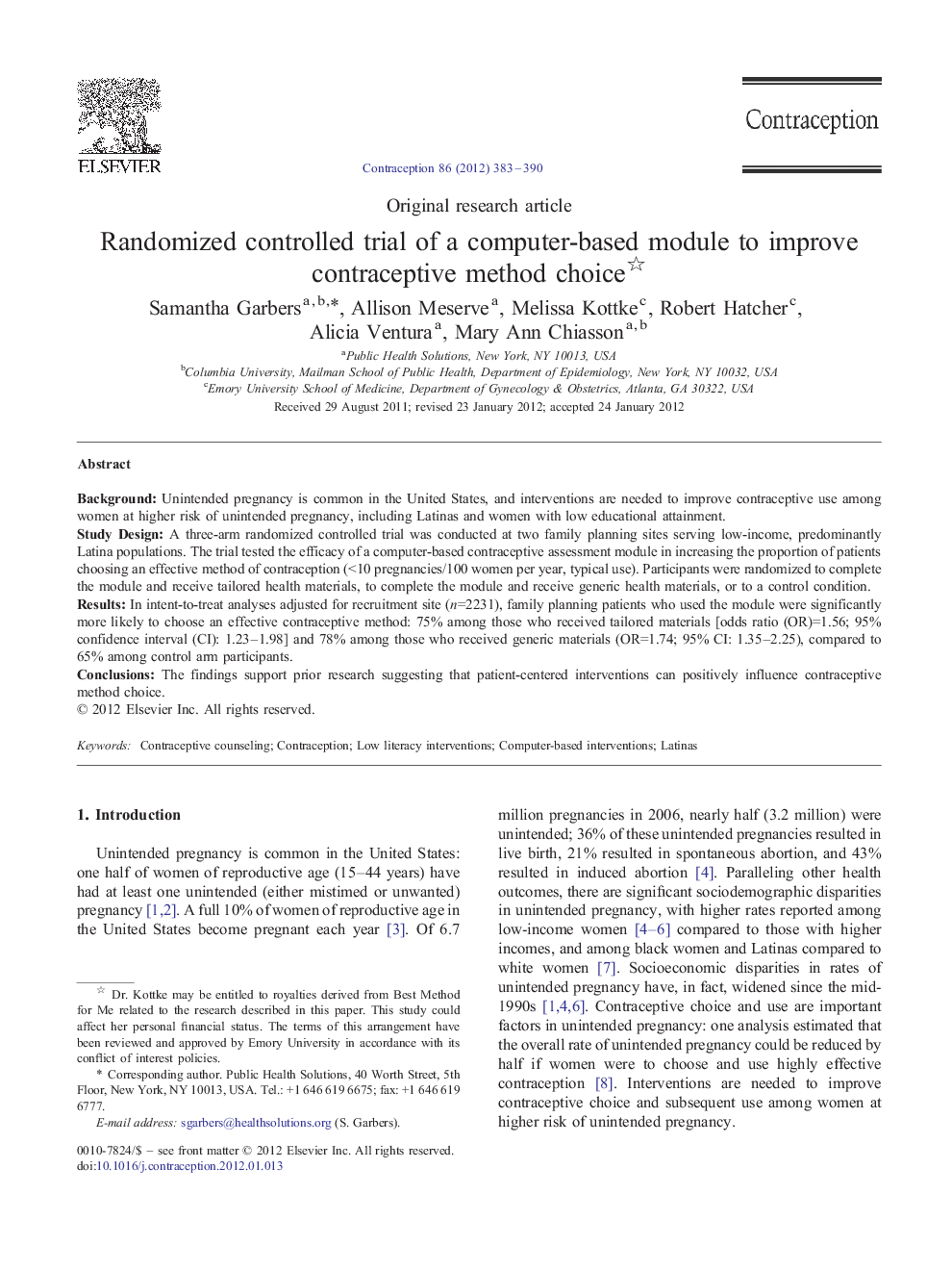| Article ID | Journal | Published Year | Pages | File Type |
|---|---|---|---|---|
| 3914150 | Contraception | 2012 | 8 Pages |
BackgroundUnintended pregnancy is common in the United States, and interventions are needed to improve contraceptive use among women at higher risk of unintended pregnancy, including Latinas and women with low educational attainment.Study DesignA three-arm randomized controlled trial was conducted at two family planning sites serving low-income, predominantly Latina populations. The trial tested the efficacy of a computer-based contraceptive assessment module in increasing the proportion of patients choosing an effective method of contraception (<10 pregnancies/100 women per year, typical use). Participants were randomized to complete the module and receive tailored health materials, to complete the module and receive generic health materials, or to a control condition.ResultsIn intent-to-treat analyses adjusted for recruitment site (n=2231), family planning patients who used the module were significantly more likely to choose an effective contraceptive method: 75% among those who received tailored materials [odds ratio (OR)=1.56; 95% confidence interval (CI): 1.23–1.98] and 78% among those who received generic materials (OR=1.74; 95% CI: 1.35–2.25), compared to 65% among control arm participants.ConclusionsThe findings support prior research suggesting that patient-centered interventions can positively influence contraceptive method choice.
